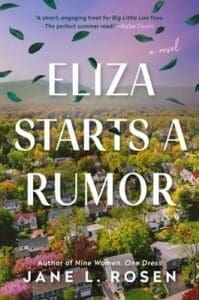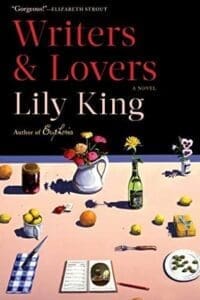Book Blurb:
Eva Traube Abrams, a semi-retired librarian in Florida, is shelving books one morning when her eyes lock on a photograph in a magazine lying open nearby. She freezes; it’s an image of a book she hasn’t seen in sixty-five years—a book she recognizes as The Book of Lost Names. The accompanying article discusses the looting of libraries by the Nazis across Europe during World War II—an experience Eva remembers well—and the search to reunite people with the texts taken from them so long ago. The book in the photograph, an eighteenth-century religious text thought to have been taken from France in the waning days of the war, is one of the most fascinating cases. Now housed in Berlin’s Zentral- und Landesbibliothek library, it appears to contain some sort of code, but researchers don’t know where it came from—or what the code means. Only Eva holds the answer—but will she have the strength to revisit old memories and help reunite those lost during the war? As a graduate student in 1942, Eva was forced to flee Paris after the arrest of her father, a Polish Jew. Finding refuge in a small mountain town in the Free Zone, she begins forging identity documents for Jewish children fleeing to neutral Switzerland. But erasing people comes with a price, and along with a mysterious, handsome forger named Rémy, Eva decides she must find a way to preserve the real names of the children who are too young to remember who they really are.
My Review: 4.5 stars
The Book of Lost Names was a heroic story about the resistance efforts by the means of forgery during WWII. For a long time, I imagined the resistance to be men who lived deep in the woods planning ways to stop the Germans with any arsenal they had. Thankfully, reading historical fiction has showed me again and again, the breadth of the resistance and how many women were part of it as well. From stamps, to spies, to architecture, the resisters were everywhere.
This book explores how a young woman, who is an armature artist and doodler, became one of the region’s best forgers. Eva forged papers for her and her mother to leave Paris. Their goal was to get to Switzerland, but first to a French country town where most of the residents would turn a blind eye to Jews. It was here that work on her own permits caught the attention of those connected to the resistance, who subsequently encouraged (begged) her to work with them.
Not only did Eva forge hundreds and hundreds of documents, she made sure to remember each child’s original name before it was changed. She did this using the Fibonacci sequence, which I’d heard of, but had no clue to its meaning. She put every child’s real name in an old Catholic tome using this coding system. Would these children ever know they were in that book? Who knows? It didn’t matter though. The act of recording each name on paper would always be proof of their existence.
There were so many characters to adore. Some of the minor characters like the bookseller and the manager of their boarding house were so instrumental, compassionate and understanding. I couldn’t relate to Eva’s mother though. She was unable to see the forest through the trees and put so much pressure on Eva. It was heartbreaking. Eva’s romance was perfectly portrayed; it was chaste, secretive and strong.
Coincidentally, a book recently came out with a very similar title and premise, although it was about recording freed slave names so that family could find one another or know that they were still alive. I’d check that one out too. It’s called The Book of Lost Friends. I must say, the timing in which I read these books was quite serendipitous.
The author’s note is worthy reading. There are historical facts mirroring what happened in this book that she goes into great detail about. This the second book I’ve read by Harmel and I’m ready to read her previous books now. She captures unknown stories about WWII and brings them to life.
Quotes I liked:
My point is that every parent wants what is best for his or her child. But we are all guilty of seeing things through our own lens.”
“Reuniting a book with its rightful owner can be magical.”
“When she came to see me, she said that anyone who saw the magic in books had to be good.”



















